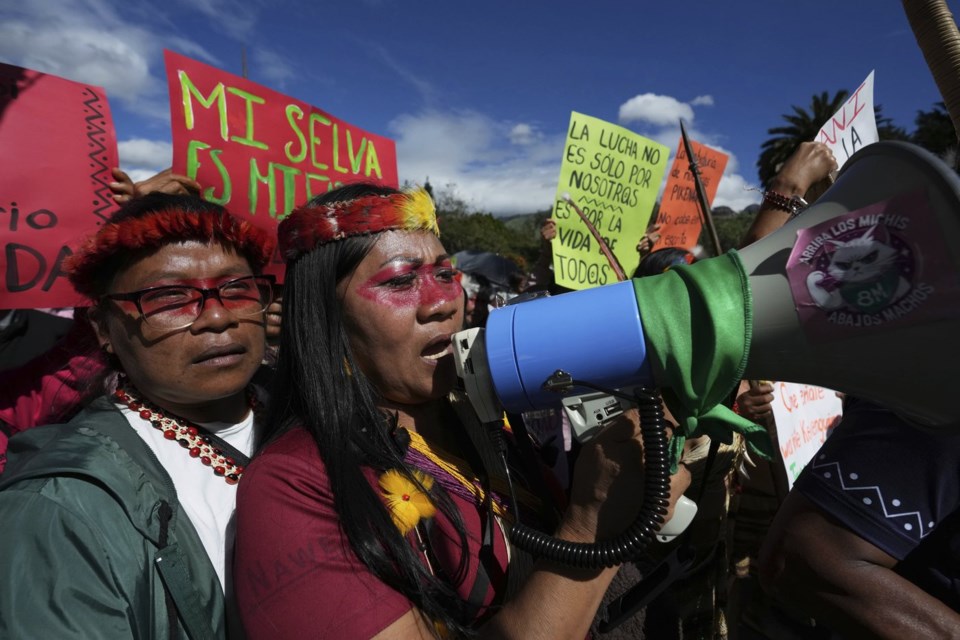Indigenous leaders from across Latin America will meet this week for talks on how to enforce legal rulings designed to enforce their rights to justice and territorial protection.
The Inter-American Court of Human Rights, a regional tribunal that holds governments accountable for upholding human rights, has made decisions backing Indigenous peoples’ rights — including to their ancestral lands, which they consider essential to preserve their culture and way of life — which are not being implemented by Latin America governments.
There is growing concern that without stronger legal protections, government enforcement and adequate resources, the Costa Rica-based court's rulings will remain largely symbolic.
Leaders from across the region will gather for a summit from May 21-25 in Quito, Ecuador, to discuss the obstacles to enforcing Inter-American Court rulings.
The main aim will be to issue a collective statement calling on governments and institutions to ensure justice and territorial protection.
“This is very important for us because there are constitutional guarantees that favor . Even so, there has not been full compliance with the rulings,” Tulio Renato Viteri Gualinga, head of international relations for the Sarayaku Indigenous community, told The Associated Press.
Nataly Yepes, a legal advisor for Amazon Watch, an organization that works to protect the rainforest, said the summit, which will be hosted by the Kichwa community of Sarayaku, marks a rare and valuable moment where Indigenous knowledge will inform discussions on strengthening justice systems across Latin America.
“What we hope is that this won’t just be a one-off event, but rather the first step toward building an alternative and critical approach to traditional justice systems," Yepes said, adding that that in times of democratic, institutional, and climate crises, Indigenous wisdom offers essential perspectives for more inclusive and resilient legal systems.
Indigenous peoples, who in many cases have successfully managed and protected lands for millennia, have long argued that ensuring territorial rights is a solution. That argument has gained traction in international climate circles in recent years, though respective governments are sometimes slow or simply opposed to granting more territorial rights.
The Inter-American Court of Human Rights rules on human rights violations across Latin America and the Caribbean. Its decisions are legally binding for member states of the , but enforcement often depends on political will at national level.
Last month, the court condemned for failing to protect the peoples in . In 2017, it ruled against Colombia for allowing oil exploration on U’wa ancestral lands without proper consultation.
Other countries — including Nicaragua, Paraguay, Suriname, Argentina and Honduras — have also faced similar rulings, though enforcement across the region has often been slow or incomplete due to lack of political will, bureaucratic delays, and weak institutions.
___
The Associated Press’ climate and environmental coverage receives financial support from multiple private foundations. AP is solely responsible for all content. Find AP’s for working with philanthropies, a list of supporters and funded coverage areas at .
Steven Grattan, The Associated Press




